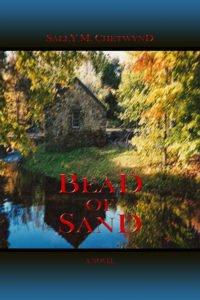Early last evening, Easter Sunday, Charlie Grant, fifer and WWII veteran (among other things), went to his great reward, quietly and peacefully. I had visited with him a week ago Saturday, and found him ready to go, whenever the Lord decided to call him. He undoubtedly had a grand reunion last night with his beloved wife Elaine, whom he missed greatly after she passed away in 2006. Charlie would have been 89 in two weeks.
Below is profile about Charlie which I wrote five years ago, published in the “Ancient Times” (a fife-&-drum quarterly) in 2008. I hope you will enjoy this little tribute to an outgoing man with simple tastes and a keen ear for music.
It was a deep privilege for me that Charlie called me ‘friend.’ We met at the American Legion Post 208 in Millis, MA, on Memorial Day 2006, when he heard me playing the fife. Being a fifer himself, he was drawn to the sound like a moth to the flame. After that, I visited him often, gaining more from his friendship than I will ever realize.
Go well, my dear friend.
Pushing 85, Charlie Grant of Millis was the eldest at Menotomy’s Midwinter Madness Fife & Drum Jam Session in February 2008. A constant melody in the opus of his life, music has been Charlie’s steadfast delight since childhood.
Born Charles H. Grant in 1923, the budding musician had drumsticks in his hands by age nine. His grandmother’s front steps, seat backs at the theater, fence railings along Boston sidewalks – all became makeshift drumheads.
In the 1930s, at Thompson Academy in Boston Harbor, Charlie learned brass – trumpet, tuba, French horn, and trombone. He worked as a shipping clerk at Conn Music Store in Boston, and sat in as a drummer when the dance bands then in town came into the shop to practice. These lunchtime jam sessions resulted in invitations to play gigs. He was often the only amateur in the orchestras of Gene Cooper, Len Gray, Artie Shaw, Vaughan Monroe, and Louie Prima.
At 17, Charlie joined the army, eight months before the United States entered World War II. In four years, he served in thirteen camps worldwide with several units. With the 11th Airborne Division, he fought in the Philippines in February 1945, engaging in Manila’s bizarre Battle of Rizal Stadium where the Japanese fought through the dugouts of the new baseball stadium. The 11th Airborne was among the first Allied forces to land in Tokyo Bay in August 1945. In Tokyo on September 5th, Charlie’s band welcomed the 1st Cavalry Division (proudly but perhaps erroneously billed as “First in Tokyo”) with “The Old Gray Mare.”
Service in the US Army proved an accompaniment to his music. Besides military duties, Charlie “doubled in brass” in the 33rd Infantry Band, playing more than one instrument, and by age 19, was assigned as Drum Major. President Franklin D. Roosevelt visited the army hospital in Trinidad in January 1943 during Charlie’s tenure as Drum Major. FDR himself singled Charlie out, asking him several questions, shaking his hand and bestowing compliments on the band.
After the war, Charlie and his first wife started a family that grew to four children, a marriage which lasted thirteen years. In 1959, he re-married to Elaine Barry, sharing 47 years until her death in 2006, a union that produced two more children. Professionally, Charlie worked for Cliquot Club, Pepsi Cola, Owens, and JNS Medical.
Socially active, Charlie has been in the American Legion most of his adult life, earlier commanding the Norwood post, now in Millis, where he serves on the executive board. A Shriner as well, he serves his Masonic Lodge steadily, again in an executive role.
In 1960, he re-organized a struggling Boy Scout drum-&-bugle corps into The Knightsmen of Millis. He promised to fire these kids with enough passion to win the state championship within five years, a tall order in that highly competitive field. He fulfilled this promise, only to have to quit the group shortly thereafter for health reasons. Sadly, no one with Charlie’s leadership, skills, and drive was available to take charge, and the corps soon disbanded.
In 1973, amid Bicentennial fervor, Charlie joined the Millis Medway Company of Militia where he learned the fife, soon his favorite instrument. He served 12 years as Music Master with the Concord Minutemen, when that corps mustered over 200 strong, impressive by any standards. One event at the Military Academy at West Point swelled Charlie’s heart with pride when as Music Master, he proudly led the Fifes and Drums of the Concord Minutemen onto the field. The powerful performance dazzled the Cadets, who had never before seen its like. Their roar of approval deafened the corps. Charlie also achieved a small personal goal that day, albeit abridged from the original dream that his father had had for him: although not as a Cadet, Charlie had finally made it to West Point.
Charlie also played with the Sudbury Ancients, and with the Shriners’ fife-&-drum corps, one of their 13 parade units. His favorite tunes include Balquidder Lasses, Downfall of Paris, and White Cockade, and he especially loves tunes with harmonies.
In the 1990s, Charlie’s eyesight began to fail, as well as the health of his wife Elaine. Charlie devoted himself to her care, philosophically putting his fife into mothballs.
But his musical retirement was not the finale he had believed. On Memorial Day in 2006, as he enjoyed breakfast at the American Legion before ceremonies, the shrill notes of a fife drew him outside like a magnet.
 |
| Charlie Grant, center, with 13th Mass drummers and fifers |
“Who is playing the fife?” he asked as he approached the source of music. Sam Chetwynd was practicing for the parade with the 13th Massachusetts Infantry, a Civil War reenactment unit commanded by Mark Slayton of Millis. Other musicians gathered – Drummers Richard Ruquist and Helen Cheney, and Fifer Jo-Ann Waithe. Following the formal ceremonies, they snagged Charlie and handed him a fife for warm-up. Within a few minutes, Charlie Grant was performing, and performing well. The little corps serenaded the American Legion members at their lunch, proving to the skeptics among them that Charlie’s musical tall tales were true.
Since then, Charlie has performed for birthday parties, the Fourth of July, his American Legion post, and other events. The 13th Massachusetts Infantry insisted that Charlie perform with them for Millis’ 2007 Memorial Day. The Sudbury Colonial Faire was a highlight, including playing with F Troop at day’s end. He had even more fun at this year’s Midwinter Madness Jam Session, where he played for most of the afternoon, remembering tunes long dormant.
He performed again at the 2008 Millis Memorial Day Ceremonies, where his participation has become an honor for everyone involved, evoking patriotic unity across the decades represented, regardless of uniform, service, or era. [In 2009, Charlie was honored to be the grand marshal for the Millis Memorial Day ceremonies, during which he shared a couple of pointed stories about his service. He performed again with the 13th Mass. Infantry field music at the 2010 Memorial Day ceremonies, but did not have the lung power to do so again in 2011. As he listened instead, I know he was playing with us in his heart. – SMC]
“I never thought I’d ever play the fife again,” Charlie Grant said last year at Millis. To the delight of Charlie and his fife-&-drum friends, he was wrong.




